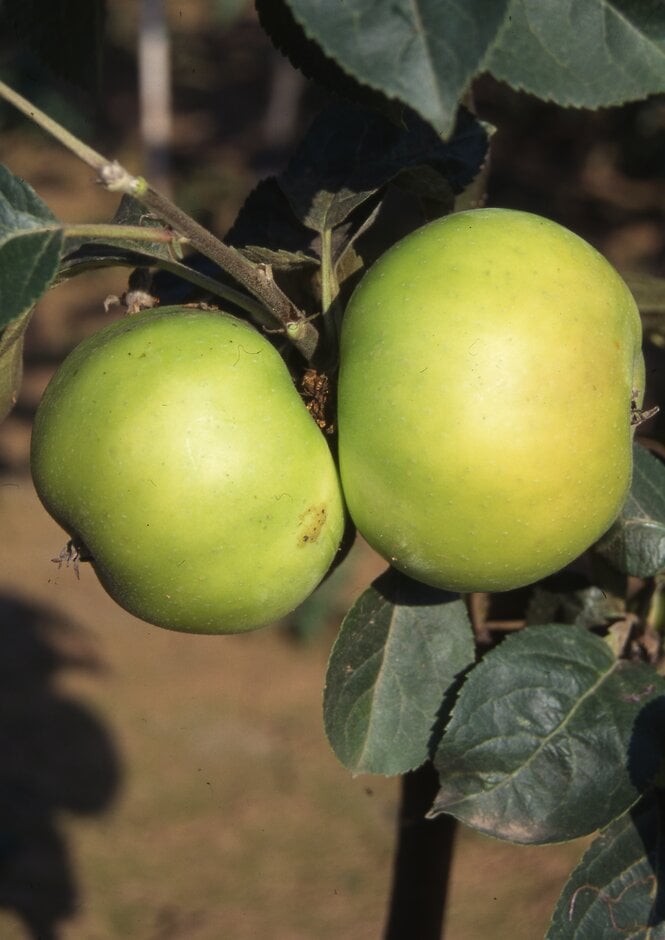Size
Ultimate height
4–8 metresTime to ultimate height
10–20 yearsUltimate spread
4–8 metresGrowing conditions
Moisture
Moist but well–drained, Well–drainedpH
Acid, Alkaline, NeutralColour & scent
| Stem | Flower | Foliage | Fruit | |
| Spring | Pink | Green | ||
|---|---|---|---|---|
| Summer | Green | |||
| Autumn | Green | Green Red Yellow | ||
| Winter |
Position
- Full sun
Aspect
North–facing or East–facing or South–facing or West–facing
Exposure
Sheltered Hardiness
H6Botanical details
- Family
- Rosaceae
- Native to GB / Ireland
- No
- Foliage
- Deciduous
- Habit
- Bushy
- Genus
Malus are small to medium-sized deciduous trees with showy flowers in spring and ornamental or edible fruit in autumn; some have good autumn foliage colour
- Name status
Accepted
- Horticultural Group
- Apples suitable for culinary use have a tart flavour and are best cooked or made into a puree
How to grow
Cultivation
Prefers a deep, fertile, moist but well-drained, neutral soil in a sheltered, sunny position. Will not thrive on very acid soils, shallow chalk soils or with shade for more than half the day. Thin fruit in late spring or early summer to improve size and quality. Tree size will vary with rootstock and training method. See apple cultivation
Propagation
Propagate by grafting in midwinter or budding in late summer. Fruit grown from pips will not resemble the parent
Suggested planting locations and garden types
- Cottage and informal garden
- City and courtyard gardens
- Patio and container plants
- Wildlife gardens
Pruning
Prune according to chosen training method, often twice a year. See apple pruning
Pests
May be susceptible to aphids, including woolly aphid and rosy apple aphid, fruit tree red spider mite, codling moth and other caterpillars
Diseases
May be susceptible to apple canker, apple scab, blossom wilt, brown rot, fireblight, honey fungus and powdery mildews
Get involved
The RHS is the UK’s gardening charity, helping people and plants to grow - nurturing a healthier, happier world, one person and one plant at a time.
